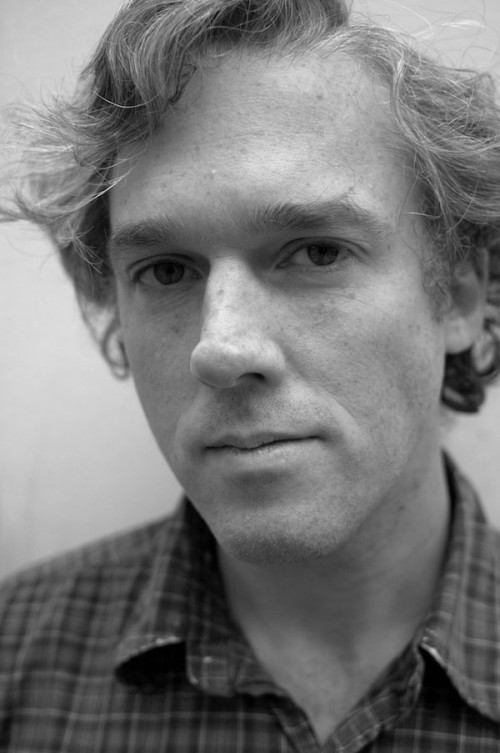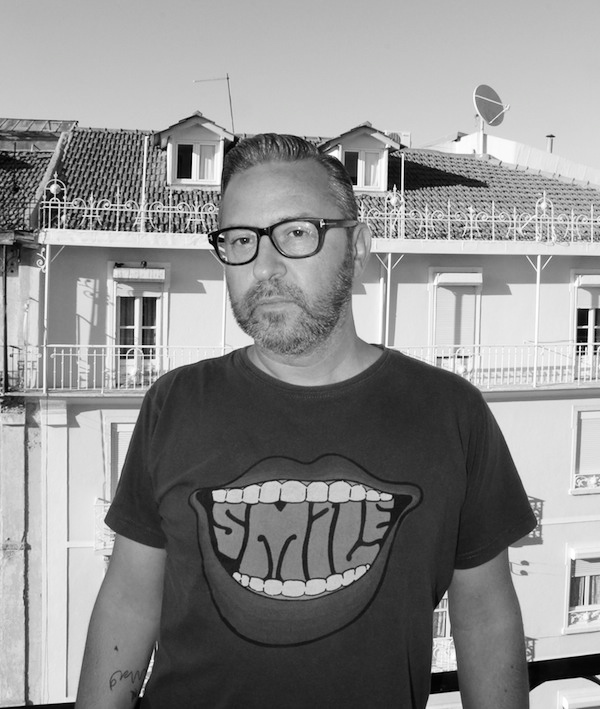Something You Inhabit
MICHAEL LANGAN is a former performance poet, constantly struggling novelist, and current memoirist. He has lectured and taught creative writing at Liverpool John Moores University and Greenwich University London for fifteen years and now writes on visual art, literature, film and dance. He also works as a mentor and reader for The Literary Consultancy. He is lucky enough to live in Lisbon with the man he loves. Michael is also currently Arts Editor of Polari magazine, the online LGBT arts and culture review.
In his monthly column Notes Towards Uncertainty, he explores his decision to give up his secure teaching job to concentrate on his own writing life. He had achieved a lot of things in his academic career, but not the stuff of his dreams. Follow Michael over the coming months as he tells the story of how and why he took this leap of faith and the rewards and difficulties it presents.
Something You Inhabit by Michael Langan
January is a strange creature, isn’t it? Like a quiet bully it menaces you into a corner then demands answers you don’t have to questions you don’t understand. I never make new year’s resolutions these days – they’re at best a blueprint for failure and, at worst, an invitation for self-loathing – instead, I try to think about words, words that might, perhaps in some abstract way, say something about my aspirations for the foreseeable future. This year, the word that has settled in my head and refuses to leave my consciousness, is nurturing; as much as possible, I’m only going to do things that nurture me, my body, my writing and my thinking.
I’ve written here before about changing some of my working practices, which mainly concerns changing my relationship with my computer; this sometimes means facing it down, implacably, showing it who’s boss by refusing to leave my chair, at other times I need to shut it off completely and put it away like any other tool I’ve finished with. I’ll see you later, when I need you again, I tell it. This switching off can be one of the hardest things to do these days but, as with many hard things, very rewarding because it cleanses and refreshes. I’m a firm believer in the craft and discipline of the writing life – of showing up for work – but one of the few perks of the writing life is that you get to decide what that means, what it looks like, even though it doesn’t look like work at all to a lot of people.
The appointment with doubt that constitutes writing every day is one that can happen in the park, with a book on your lap, as you’re walking from café to café, or making a great soup. The fact is, I am never not a writer. You don’t have to punish yourself, on top of everything else, by sitting in the company of a computer who’s not being much fun right now. Still, if we could all take our own advice, we’d be perfect, wouldn’t we? I know lots of writers spend time engaging with social media as distraction, diversion and helper – it is an amazing resource after all. David Mitchell, author of Cloud Atlas, surely one of the best pieces of popular fiction of recent years, said recently:
Much of the ingenuity of our remarkable species goes towards finding new ways to distract ourselves from things that really matter. The internet – it’s lethal, isn’t it? Maintaining focus is critical, I think, in the presence of endless distraction. I do think there’s some relationship between maintaining focus, looking closely, and the act of writing itself.
The last year or so I’ve noticed a big increase in the number of online listicles offering writing maxims – top ten tips for successful prose and the suchlike. This click-baiting stuff, shared amongst writers by writers, is designed to be inspirational and insightful but ultimately works like advertising slogans – flattering you (I totally do that!) while making you feel inadequate (Oh, I really should be doing that…) at the same time – so you buy into what it’s selling. Just as advertising relies on creating a sense of lack in your life that only a particular product can fill, so these listicles are a promise of success that hooks you enough to keep clicking for more. Oh, I read them, of course I do. Occasionally, they might tell you something important, or relevant, or truly helpful, but, like a small lottery win, these moments act only to give you a glimmer of hope as you struggle on with the day-to-day business of writing.
I tell my students that when you write, you should pretend you’re writing the best letter you ever wrote to the smartest friend you have – Jeffrey Eugenides.
I think this is all you need to remember. You have to imagine a reader, a person, who likes you, and who you really like, and write for them. There is no (or, perhaps, less) self-consciousness in this relationship. It’s about one individual talking to another individual, which, even in today’s world is still our experience of reading. Understand that your experience is both subjective and universal – this is why art works.
A major part of the ethos offered by Seymour’s space in Paris is the opportunity to switch off from technology, to explore creativity in an environment where computers and mobile phones are barred from entry. Emptiness, daydreaming, even boredom, are the portals to creativity, not distraction. You have to train yourself, constantly remind yourself, urge yourself, to keep your eyes open and let them fall on nothing. Be open to the random nature of experience – what’s outside the window, what’s inside your head. Be suggestible, be impressionable, susceptible to the things you see and do, the things you listen to, watch and look at. Examine them all.
When I was packing my books to put into storage before I left London for Lisbon, I labelled one box ‘Important Books’ and chose certain things to go in there so that, when I got round to shipping stuff over, I could prioritise those important books. I think it’s a good idea to have the equivalent in your working space – a shelf or pile of the books most important to you so that when you need sustenance, inspiration, energy, nurturing, comfort, and whatever else, you need only reach out and take one of those books to dip into. Or just do it for the sake of it, to remind yourself why you love reading and writing.
Every day, you should read something, or listen to something, or watch something, see something, that you love. Every day. If you are lucky enough to be in love, tell the person you love that you love them. Every day. Remember that your body isn’t something you look at, or take photos of for other people to look at, it’s something you inhabit. Use your body. Dance at least once a day. Exercise often. Sing regularly, even if, like me, you are a terrible singer. These are the things that truly nurture.
M.L. 2015
Published: January 29th, 2015





